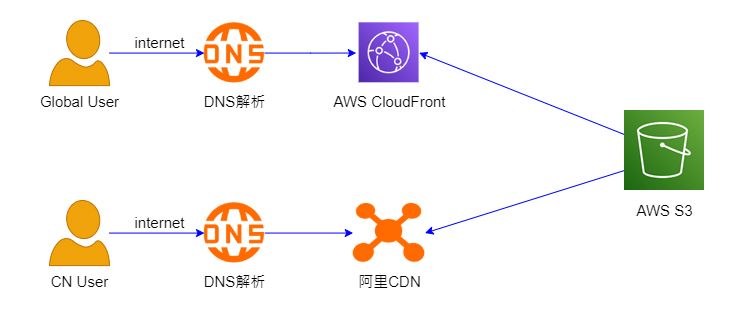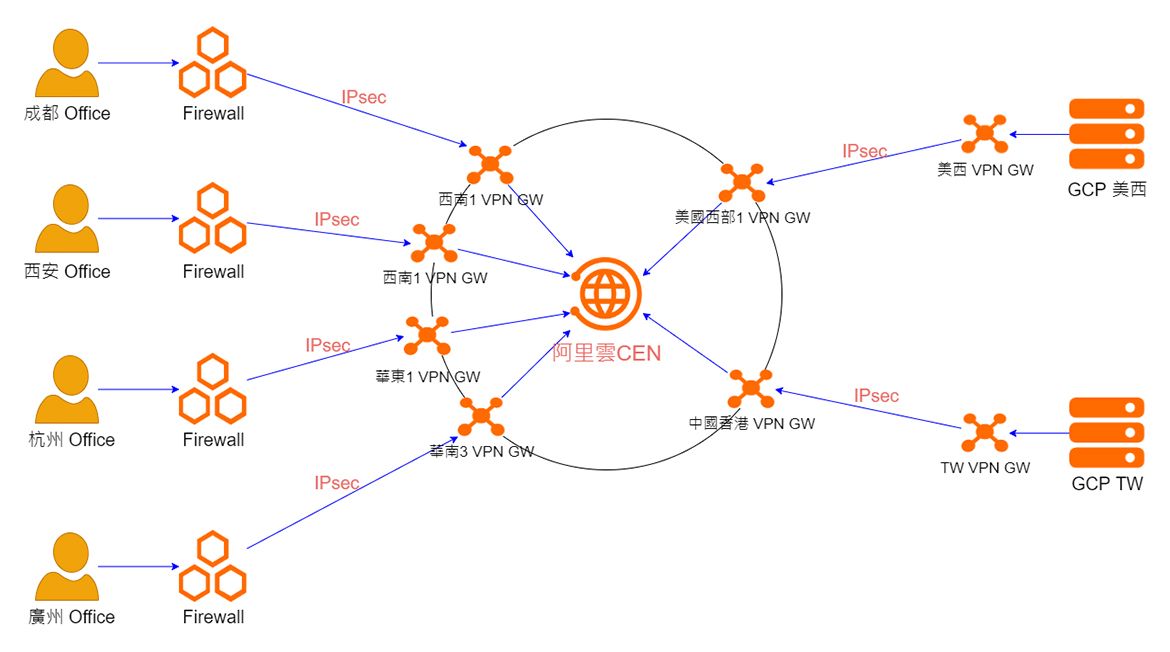There is a Hybrid Cloud Acceleration use case by using services from different cloud platforms. Customers offer their end-point users around the world the same high-quality user experiences. As an illustration, customers utilize the following cloud service: Alibaba DNS analyzer, AWS CloudFront, Tencent Cloud CDN, and AWS S3.
First, the customer launches a website service, which offers end-point users audio and visual materials such as video, music, photos, etc. These materials are stored in AWS S3. Then Alibaba DNS analyzer classifies users. If the traffic is coming from overseas, which means a global user is sending a request, the Alibaba DNS analyzer directs the traffic into AWS CloudFront and then access data from nodes that cache from AWS S3. If the traffic is coming from China, which means a CN user is sending a request, the Alibaba DNS analyzer directs the traffic into Tencent CDN and then access data from nodes that cache from AWS S3.

There is another Hybrid Cloud Acceleration use case by using services from different cloud platforms. As an illustration, customers utilize the following cloud service:
Alibaba Cloud CEN (Cloud Enterprise Network), GCP-GCE, firewall, IPsec (Internet Protocol Security), VPN Gateway.
First, the customer launches two virtual machines as host servers in Taiwan and US-West by Google Cloud Engine. Then, Alibaba CEN is to integrate these cloud services as a system. As shown in the Illustration, no matter customers are coming from Chengdu, Xi'an, Hangzhou, and Guangzhou, they finally could access the host server by passing through the firewall, IPsec, VPN Gateway.
This case shows us that Hybrid Cloud Acceleration offers clients successful access to the cloud service, which breaks through the geographic limits and solves latency and packet loss problems.


